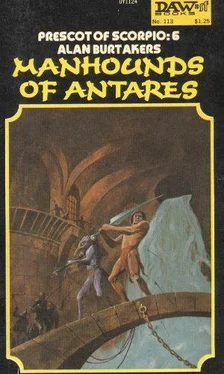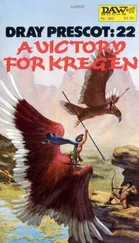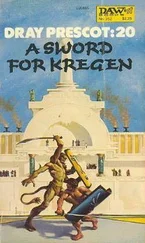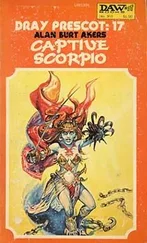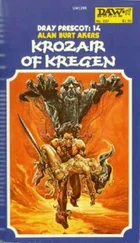Alan Akers - Manhounds of Antares
Здесь есть возможность читать онлайн «Alan Akers - Manhounds of Antares» весь текст электронной книги совершенно бесплатно (целиком полную версию без сокращений). В некоторых случаях можно слушать аудио, скачать через торрент в формате fb2 и присутствует краткое содержание. Жанр: Героическая фантастика, на английском языке. Описание произведения, (предисловие) а так же отзывы посетителей доступны на портале библиотеки ЛибКат.
- Название:Manhounds of Antares
- Автор:
- Жанр:
- Год:неизвестен
- ISBN:нет данных
- Рейтинг книги:4 / 5. Голосов: 1
-
Избранное:Добавить в избранное
- Отзывы:
-
Ваша оценка:
- 80
- 1
- 2
- 3
- 4
- 5
Manhounds of Antares: краткое содержание, описание и аннотация
Предлагаем к чтению аннотацию, описание, краткое содержание или предисловие (зависит от того, что написал сам автор книги «Manhounds of Antares»). Если вы не нашли необходимую информацию о книге — напишите в комментариях, мы постараемся отыскать её.
Manhounds of Antares — читать онлайн бесплатно полную книгу (весь текст) целиком
Ниже представлен текст книги, разбитый по страницам. Система сохранения места последней прочитанной страницы, позволяет с удобством читать онлайн бесплатно книгу «Manhounds of Antares», без необходимости каждый раз заново искать на чём Вы остановились. Поставьте закладку, и сможете в любой момент перейти на страницу, на которой закончили чтение.
Интервал:
Закладка:
I went around the angle of a bastion — for the towers were square-angled and not rounded — and prowled on, brought back to my senses by the hurtling passage of a lesser moon across the heavens. I found the man I sought leaning on his stux and opening a packet made from soft leaves to get at the wad of cham inside. I hit him cleanly on the back of the neck, below the neck-guard, and he pitched to the stones.
Dragging him back into the shadows of a wall and stripping him took little time. I had been careful, the man I wanted not being the first sentry I had seen, and his equipment fitted — but only just. Dressed and accoutered as a soldier of the Army of Canopdrin I stepped out, leaving the man bound and gagged, and marched boldly for the bridge.
While it is true to say that the necessary demands of discipline and organization make one army very much like another, and the better an army is the nearer it approaches to an unattainable ideal, there must of necessity be many differences between army and army, details that are unique to any fighting force. I felt confident I could bluff to a great extent; after that, I would just have to take my chances, for there was precious little chance of finding another way into the fortress as quickly as this. Common sense had dictated that I find a bridge as far from the one the sentry’s comrades would be guarding as I could. On my shield, below the embossed image of the leaping leem, there had been painted in white the stylized representation of a fluttrell, with the figures for six and five. By their relative sizes I judged this would be the sixth regiment and the fifth subdivision of that regiment, called what I did not know as yet, for Planath had no knowledge of military organization. The men guarding the bridge I chose, besides having a different color arrangement of the streamers over their shoulder armor, carried on their shields the silver leem and, below it, a blue-painted zorca with the figures for eight and two. I marched in boldly and, as I had seen the men do on the bridge, brought the stux up and across in a salute. Without breaking step I strode on. An ob-Deldar looked across and called: “It’s your guts, is it, soldier?”
An ob-Deldar is the lowest one can get — as any ranker will say — and so I answered hoarsely: “Too true, Deldar. They pain something awful.”
The ob-Deldar laughed with great malice and so I passed on into the dark shadows of Mungul Sidrath. Observation that had helped me thus far could no longer give me a guide on the behavior patterns of the men of this army.
Down in the dungeons, Planath the Wine had said, shaking his head. Therefore, I must go down, and to descend I had to find a stairway of some kind. I had ideas on the proper situation of stairways in fortresses, and I found that whoever in the ancient times had designed Mungul Sidrath had come a long way along the path of fortress construction. The stairway was exceedingly narrow, and spiraled the wrong way — that is, it had been designed so that a man going down, as I was, had the advantage of the curve. This could only mean the designer had recognized the possibility of entrance below and had decided on the main-gate level as his central stand-area. He had ruled out any idea of defenders running below against a successful entrance by attackers through the gate. Going up into the towers the curve would be against a man.
The stones were surprisingly dry, considering the Magan flowed nearby, and only occasional runnels of water trickled across the stones. Where they did so they stained darkly and lichens grew. The air grew unpleasant but breathable.
At the bottom the stair curled in on itself, so that a man might stand and loose against men running up the passageway. The ceiling here was low and I took off the tall helmet. Farther along the way widened and two guards, their stuxes leaning against the wall, were crouched over tossing dice. They looked up suddenly as I approached, saw I was a mere ranker, and pulled back to get out of the way. Farther along there might be a single sentry; so leaving these two to a mercy they had no idea had touched them, I went on.
They had not spoken. The language used by the ob-Deldar had varied only minutely from the universal Kregish, and I guessed it was Canoptish, the local language of Canopdrin. The sound of rushing water ahead and a marked cooling and freshening of the air made me lengthen my stride. In a man-made cavern carved from an original bubble in the rock, water poured through from a black cleft high in one wall, dropped in a great weltering and rushing of foam and spume, sped sheeningly through a wide conduit, and passed in another broad shining curve of water down and out of sight beyond an arched opening in the opposite wall. The passageway opened onto nothingness and the path was carried on a narrow wooden bridge across the pelting water. Steps led to a neat contraption after the fashion of a waterwheel by which water could be lifted from the stream and raised, level by level, until it was carried out of sight into the mouth of a shaft. Buckets hung from the shaft mouth. Here guards cracked their whips and slaves of all kinds turned the great waterwheels, level by level, and lifted the fluid up and into the fortress so that, no doubt, the great men of the Canops might drink and wash and waste the water that had cost so much effort.
The noise blattered unceasingly. Water splashed and hissed. Whips cracked. Men screamed and guards yelled obscene orders to work faster, faster, and smash went the whips, and around and around hauled the slaves, all filthy and naked and hairy, and in fountains of silvery leaping spillings the water lifted high. The name on Kregen for water fitted that scene.
Passing on, with a salute for the Deldar in command, I came into an area of gloom, for the torches guttered low and there were no fireglass panels above, as there had been in the cavern of the waterwheels.
The sight of these hairy naked devils writhing and struggling and hauling, the spouts of water slopping everywhere, the insufferable noises, affected me profoundly. Truly, there was a foretaste of the Ice Floes of Sicce here!
“In the name of Lem! Who are you?”
From a side passage barred by an iron door, now open, a Hikdar stepped out. He carried a shield like my own, except that the fluttrell and the numerals six and five were raised from the surface and colored silver. He glared at me with his hard, mahogany-tough face filled with a surprise that swiftly changed to suspicion and then to certainty as he spoke.
“I know every man of the eighty in the Fifth Pastang! You are not one of my men — there is no desertion from — by the Great and Bone-Crushing Lem himself! You are Dray Prescot!”
And his thraxter whipped out and his shield came around with a thump and he charged straight for me. Even as I responded in kind I had to fight the nausea of knowing that these devils of Canops had forced information from my friends; this Hikdar could never otherwise have known my name. He came in very expertly, shouting the while to summon more men. He had to be dealt with quickly. Using a shield like this, with a sword, came strangely at first, but I had not forgotten what I had taught my old vosk-helmets of the warrens. Thraxters clashed against shields, and I bashed him low, against the swell of the lorica over his belly, and then slipped a nasty little thrust in that finished him. The thraxters were suited for this work, being not too long yet long enough to make swordplay of some value, coupled with a shield used as an offensive weapon. The sound of iron nails on the stone blattered echoing along between the walls. There was just the one way to go and that was the way I took. Around me now barred openings revealed cells. Hairy bewhiskered faces pressed up against the bars and a dolorous chorus of catcalls and shrieks echoed through the dimly lighted way. Many prisoners, there were, and yet they were all probably segregated, there on punishment detail, military prisoners serving sentences. Those I sought would be lower, in the dungeons. A crossbow bolt hissed past and a voice lifted, ringing between the stone walls.
Читать дальшеИнтервал:
Закладка:
Похожие книги на «Manhounds of Antares»
Представляем Вашему вниманию похожие книги на «Manhounds of Antares» списком для выбора. Мы отобрали схожую по названию и смыслу литературу в надежде предоставить читателям больше вариантов отыскать новые, интересные, ещё непрочитанные произведения.
Обсуждение, отзывы о книге «Manhounds of Antares» и просто собственные мнения читателей. Оставьте ваши комментарии, напишите, что Вы думаете о произведении, его смысле или главных героях. Укажите что конкретно понравилось, а что нет, и почему Вы так считаете.
